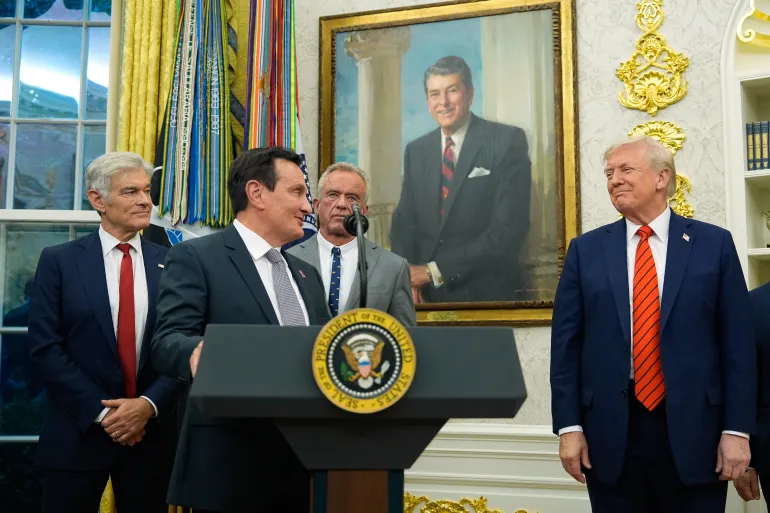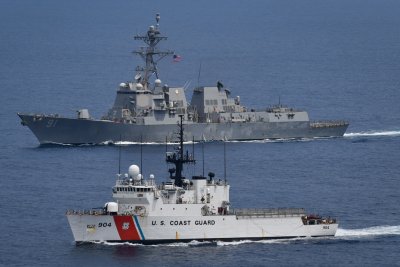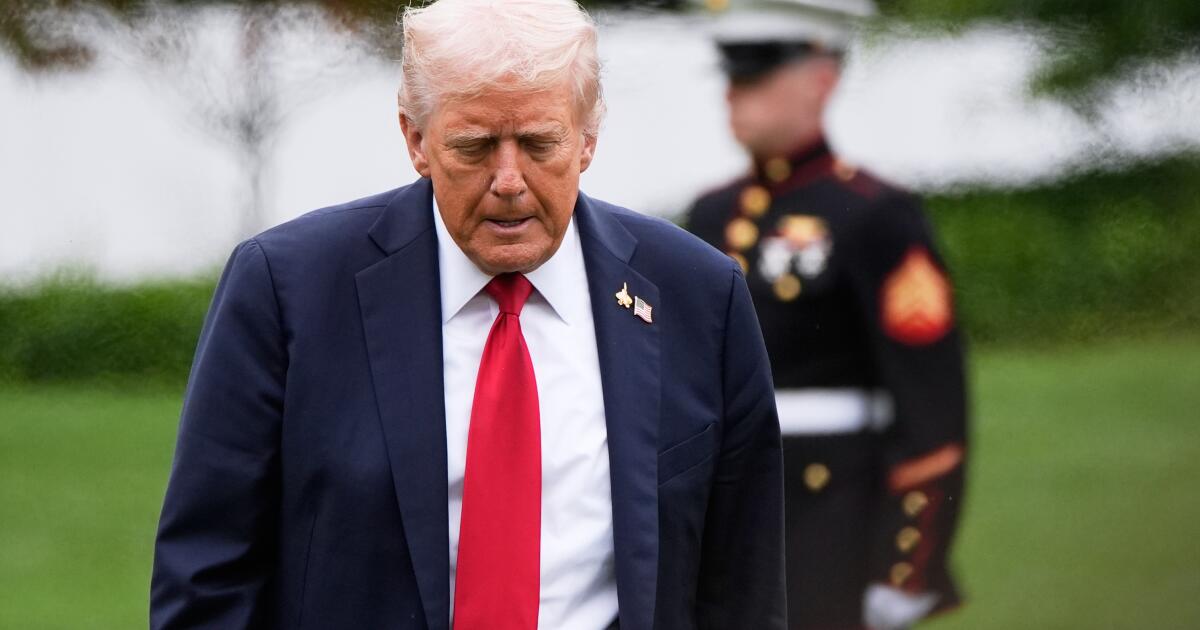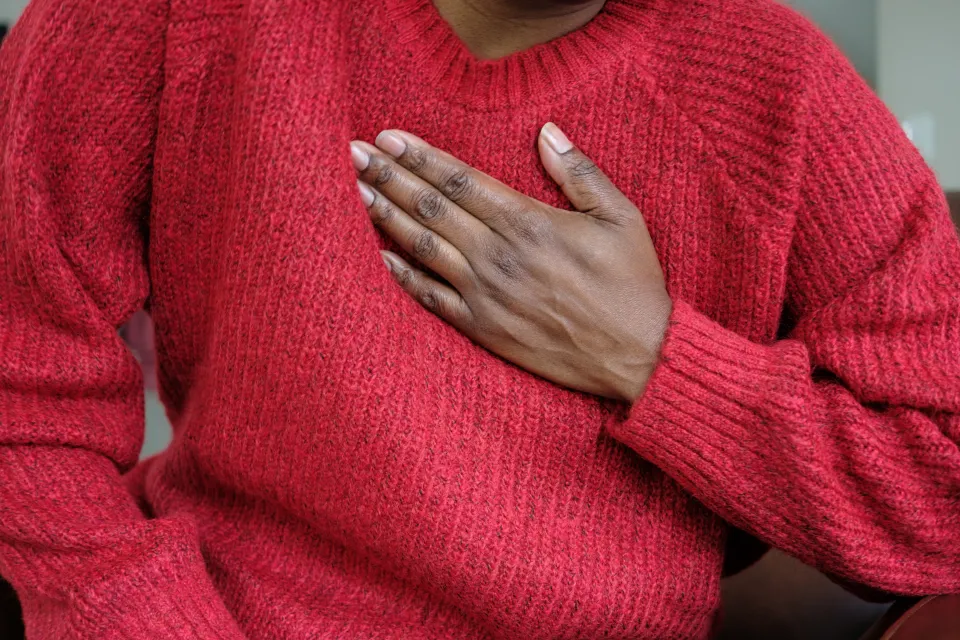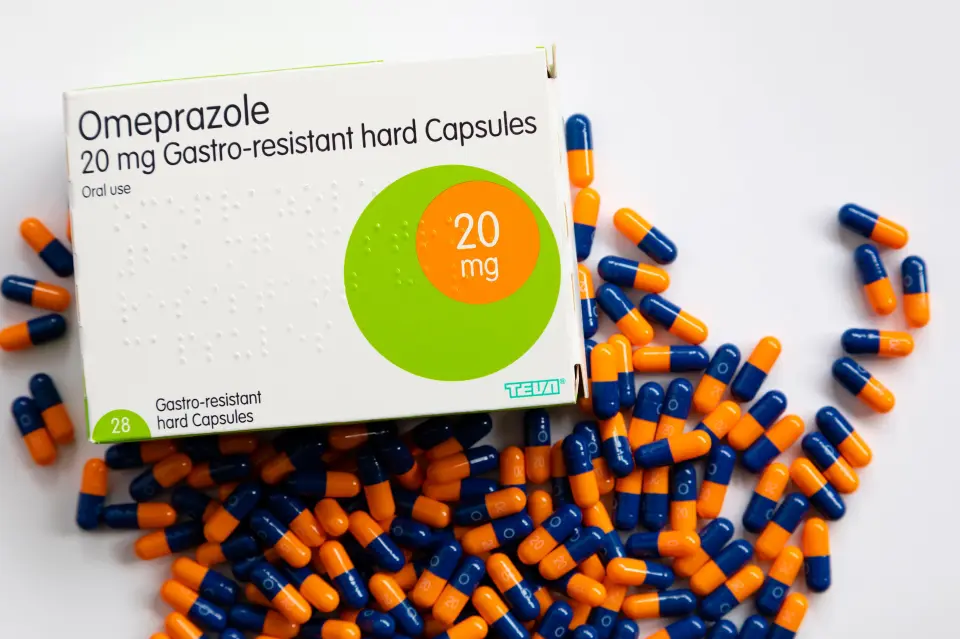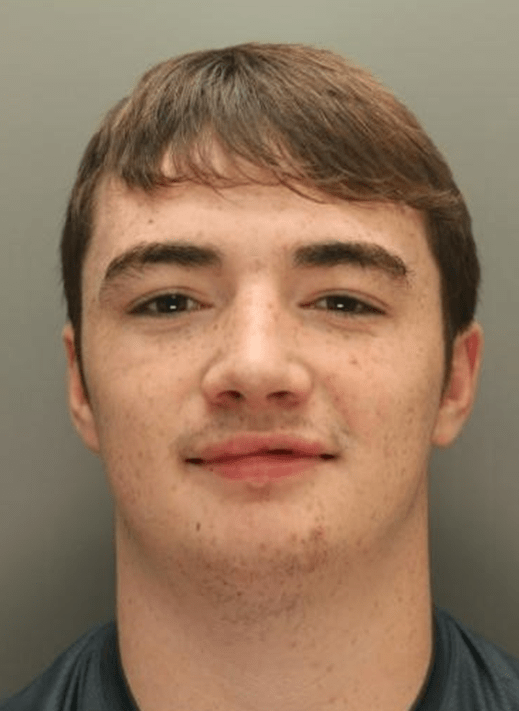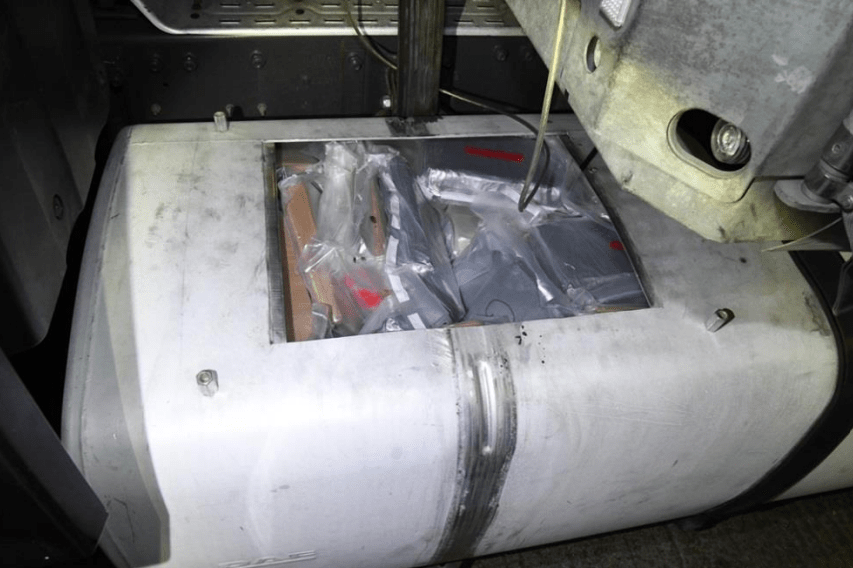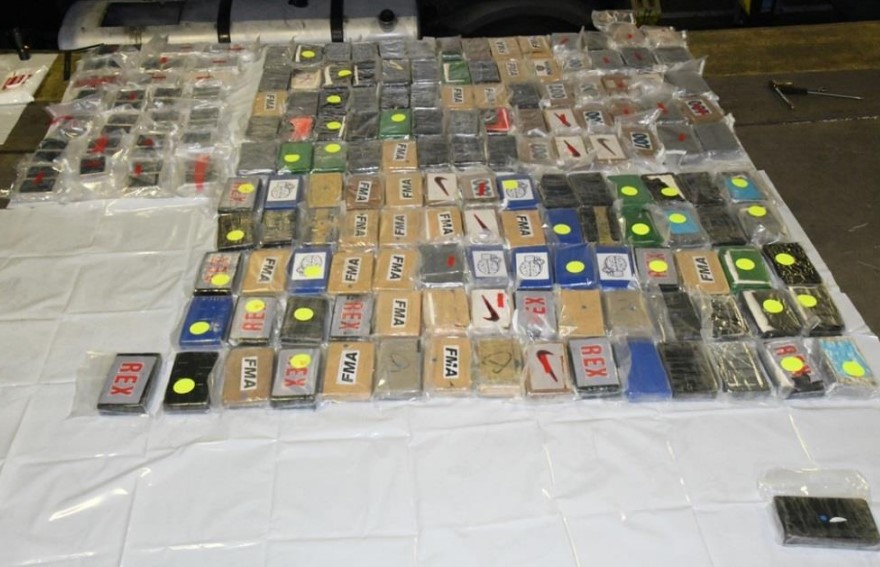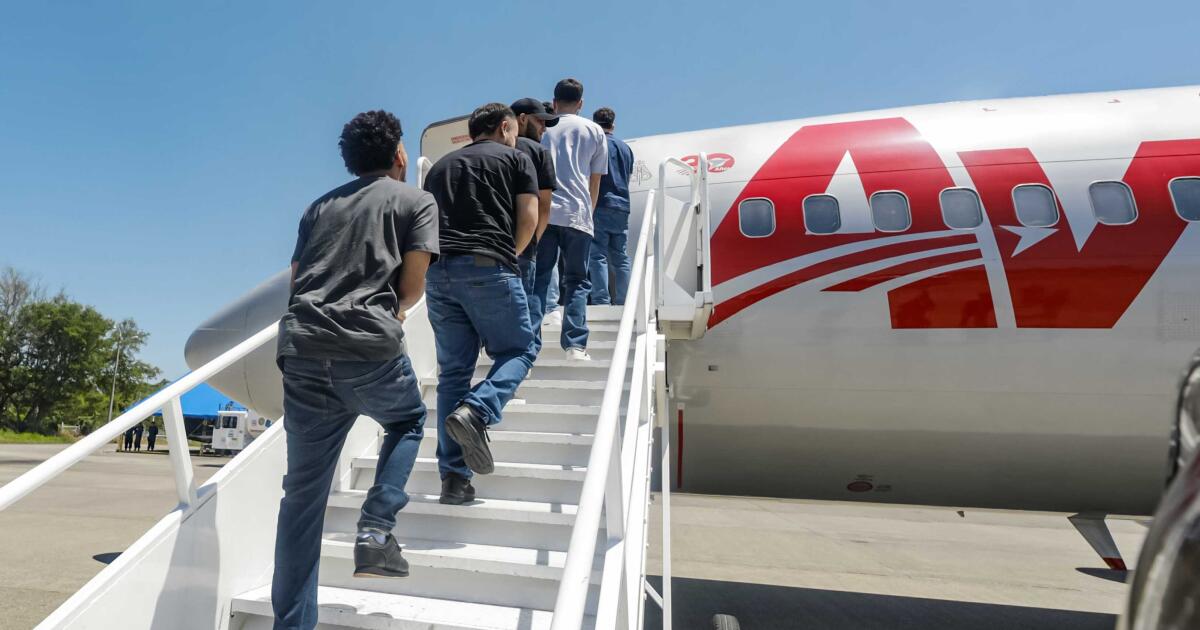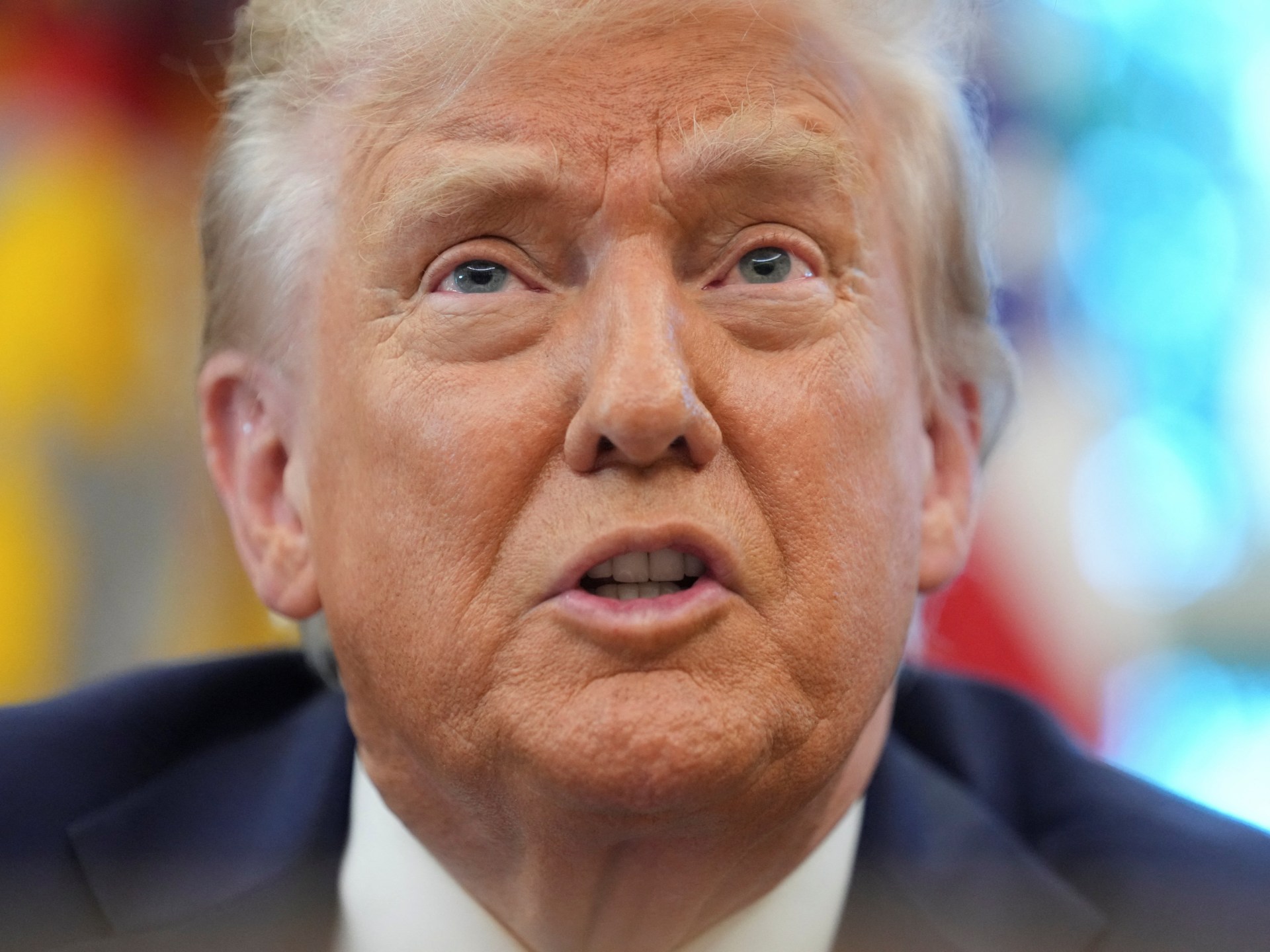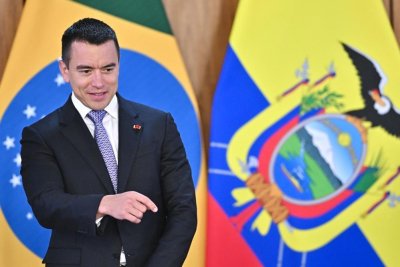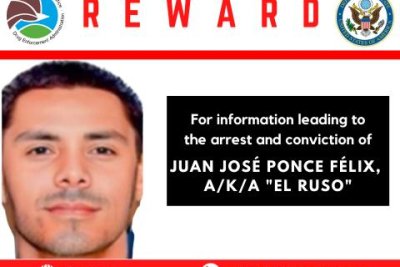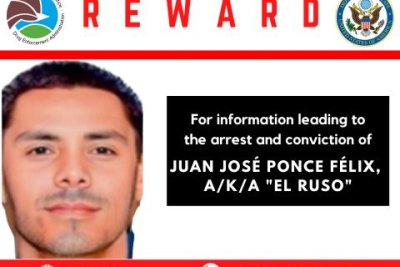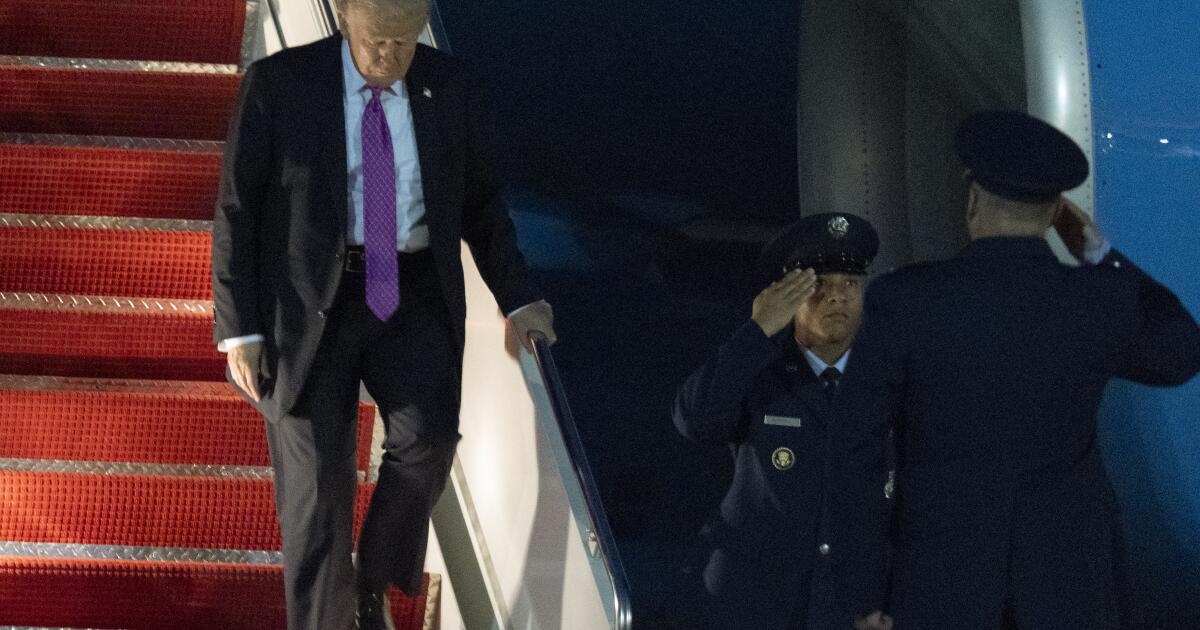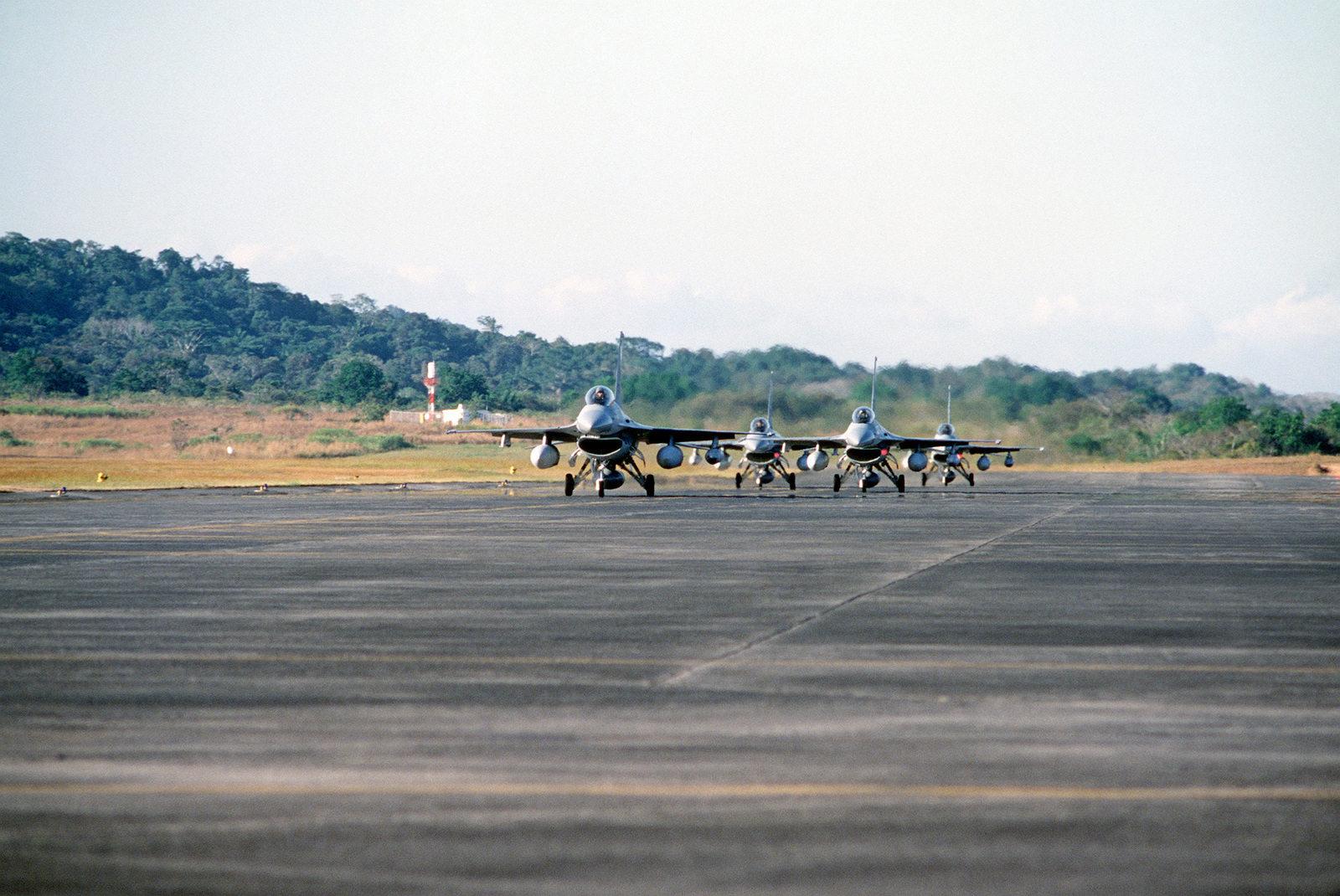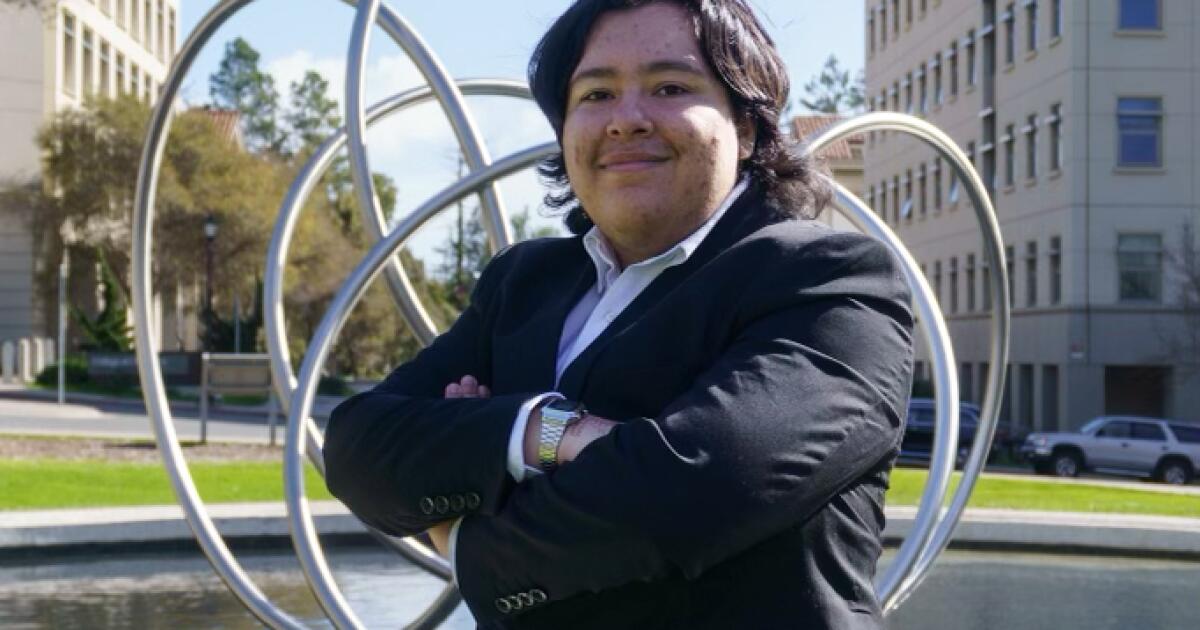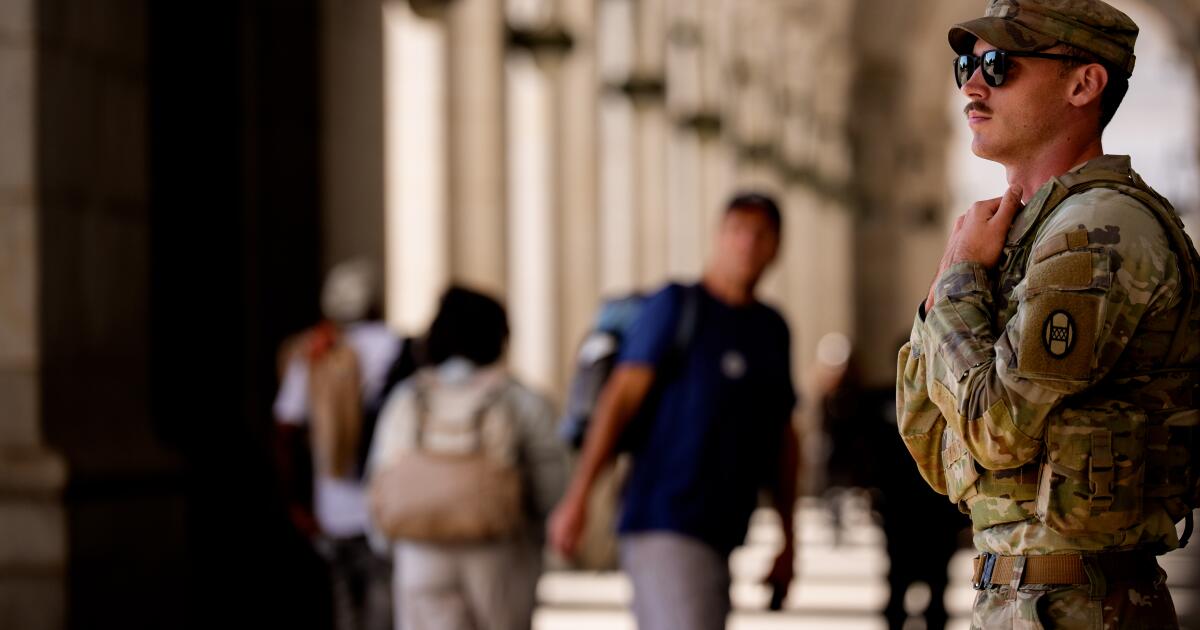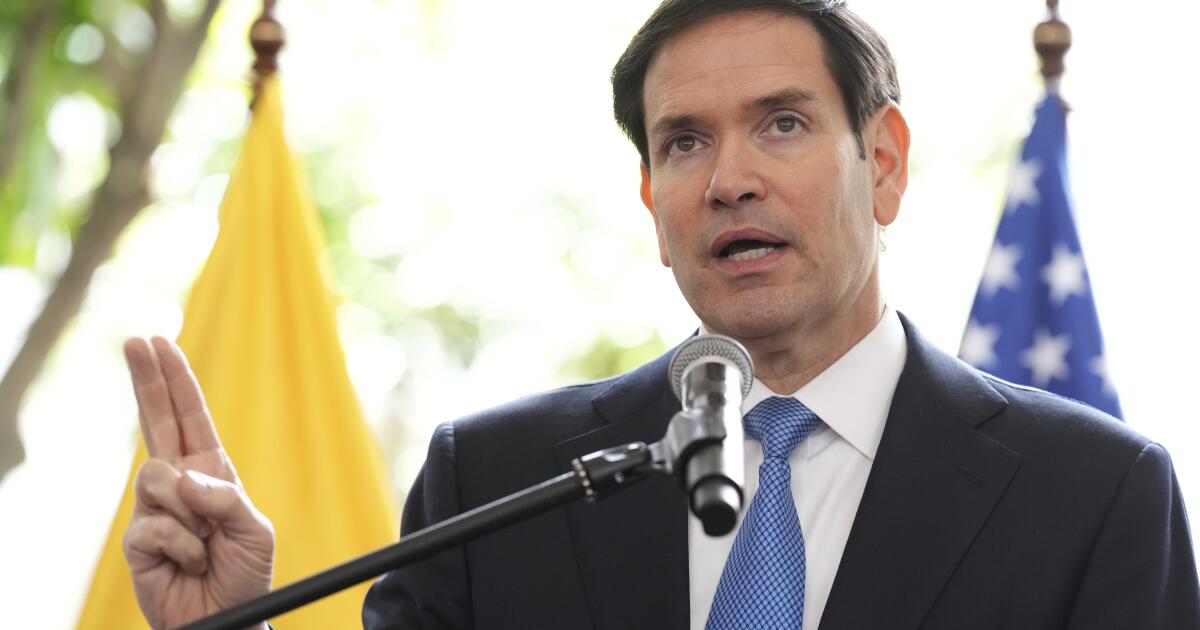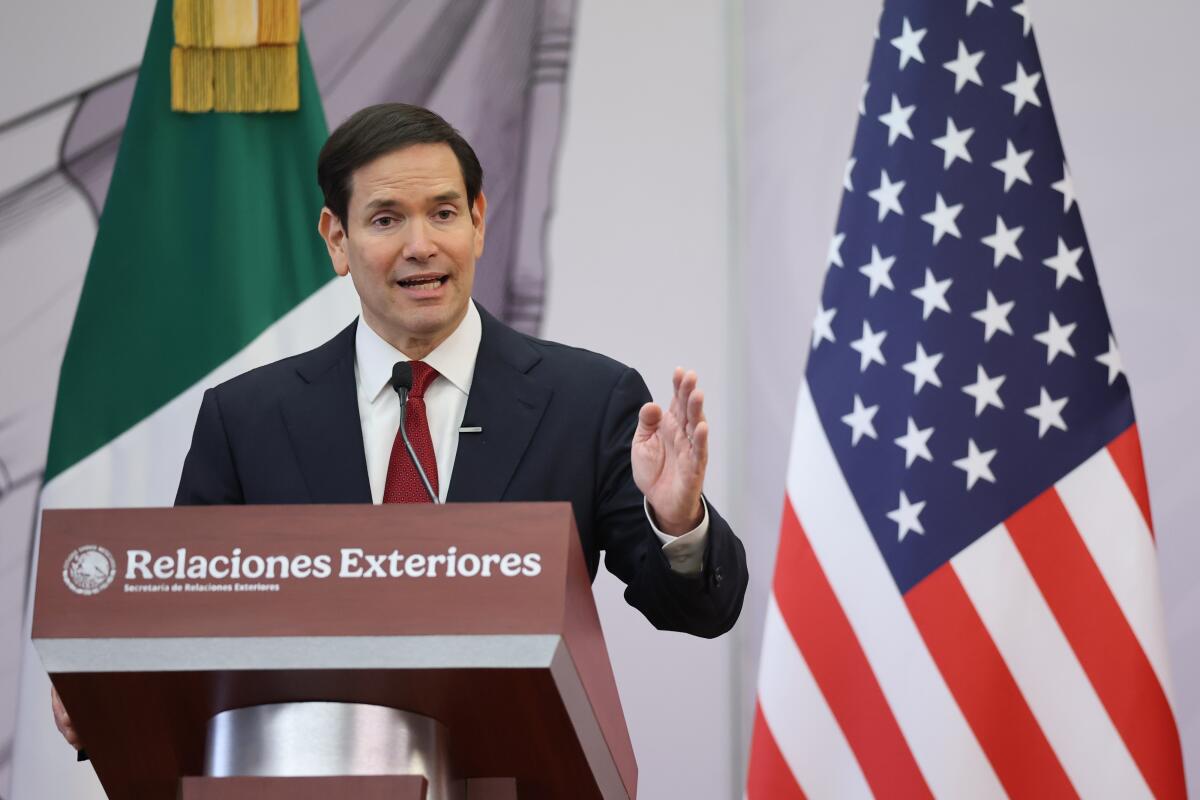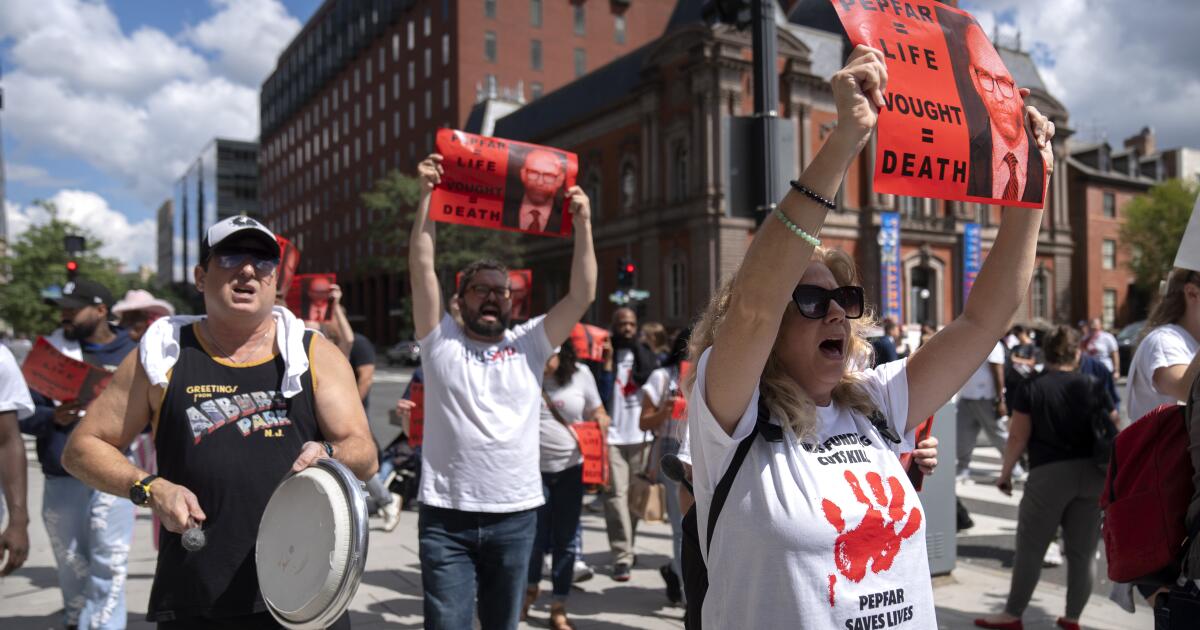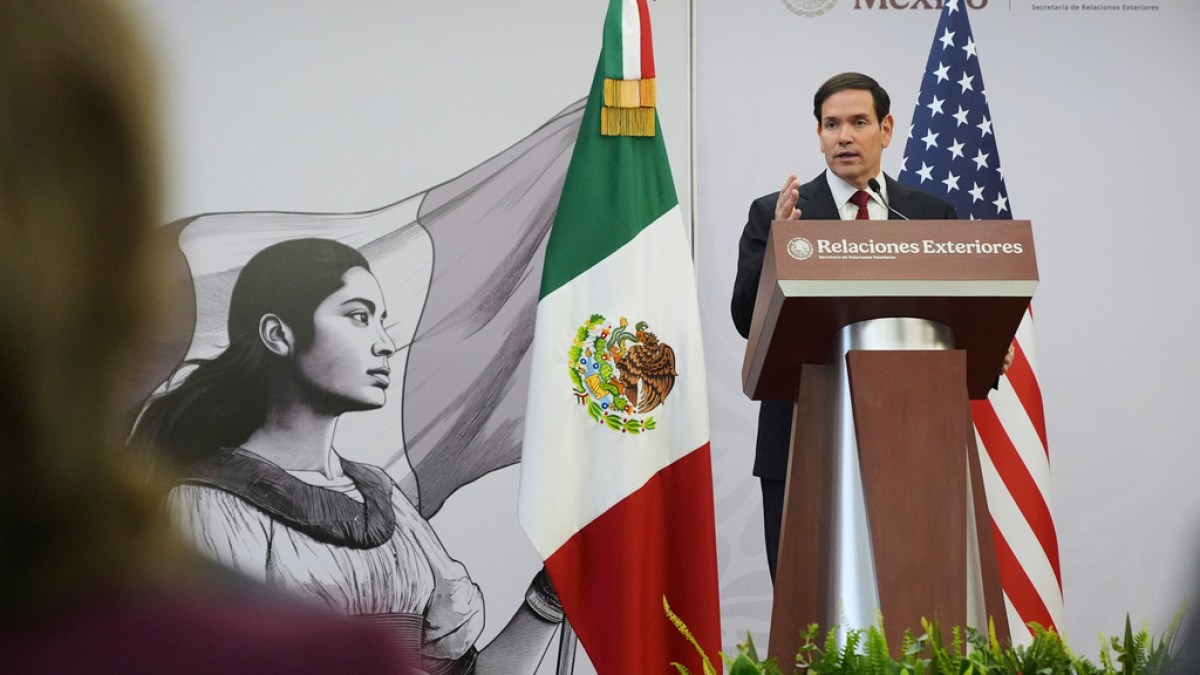Trump reveals prescription drug deal with pharmaceutical giant AstraZeneca | Donald Trump News
United States President Donald Trump has unveiled a second deal with a major pharmaceutical company to offer lower-cost prescription drugs direct to American consumers.
This time, the agreement concerned AstraZeneca, a multinational based in the United Kingdom.
Recommended Stories
list of 3 itemsend of list
Trump hosted the company’s chief executive, Pascal Soriot, in the Oval Office on Friday to publicly cement the deal, which he described as “another historic achievement in our quest to lower drug prices for all Americans”.
“Americans can expect discounts, and as I said, it could be, in many cases, way over a hundred percent,” Trump said.
As in previous press appearances, he pledged US consumers would see impossible discounts on popular medications.
Inhalers to treat asthma, for example, would be discounted by 654 percent, Trump said, calling the device a “drug that’s hot, very hot”. He also reiterated past claims that some medications could see “a thousand percent reduction”.
Trump has long pushed to reduce prescription drug costs to what he has billed as “most-favoured nations prices”.
That would bring prices down to the same level as in other developed countries, though Trump, with typical hyperbole, has said the policy would equate to “the lowest price anywhere in the world”.

AstraZeneca is the second major pharmaceutical company after Pfizer to strike such a bargain. Last month, Pfizer announced a “voluntary agreement” to price its products “at parity with other key developed markets”.
Like AstraZeneca, it also agreed to participate in an online, direct-to-consumer marketplace the Trump administration plans to launch, called TrumpRx.
But in a news release on its website, Pfizer made clear that the agreement would help it dodge the high tariffs that Trump threatened against overseas pharmaceutical manufacturers.
“We now have the certainty and stability we need on two critical fronts, tariffs and pricing, that have suppressed the industry’s valuations to historic lows,” Pfizer CEO Albert Bourla said.
At Friday’s Oval Office ceremony, officials like Health and Human Services Secretary Robert F Kennedy Jr openly celebrated the power Trump had wielded through his tariff threats.
“ The president saw something that we didn’t see, which is we had leverage, and that came through Howard [Lutnick] and the tariffs,” Kennedy said, giving a nod to Trump’s commerce secretary. “We had extraordinary leverage to craft these deals.”
The deals with both AstraZeneca and Pfizer came after Trump threatened in September to impose a 100-percent tariff on pharmaceutical companies unless they started to build manufacturing plants in the US.
“There will, therefore, be no Tariff on these Pharmaceutical Products if construction has started,” Trump wrote on his platform, Truth Social.
Those tariffs were slated to come into effect on October 1. But Pfizer unveiled its deal with the Trump administration on September 30, and the tariffs were subsequently postponed.
In Friday’s Oval Office appearance, Soriot acknowledged that, like Pfizer, he had negotiated a delay for any tariffs against AstraZeneca. In exchange, he pledged to increase US investments to $50bn by 2030.
“I appreciate very much Secretary Lutnick granting us a three-year tariff exemption to localise the remainder of our products,” Soriot said. “Most of our products are locally manufactured, but we need to transfer the remaining part to this country.”
Just one day earlier, AstraZeneca had revealed it would construct a “multi-billion-dollar drug substance manufacturing centre” in Virginia, with a focus on chronic diseases, a top priority for the Trump administration.

Trump himself touted his tariff threat as the impetus for the recent string of drug deals. When asked by a reporter if he could have brought the pharmaceutical companies to the negotiating table any other way, Trump was blunt.
“ I would never have been able to bring him,” he replied, with a gesture to Soriot. “ Now, I’m not sure that Pascal would like to say, but behind the scenes, he did say tariffs were a big reason he came here.”
Since returning for a second term as president, the Republican leader has relied heavily on tariffs – and the threats of tariffs – as a cudgel to bring foreign governments and businesses in line with his administration’s priorities.
He has called the term “tariff” the “most beautiful word” in the dictionary and repeatedly labelled the dates he unveiled such import taxes as “Liberation Day”.
But earlier this year, it was unclear if his sabre-rattling would pay dividends. In May, for instance, Trump issued an executive action calling on his government to take “all necessary and appropriate action” to penalise countries whose policies he understood as driving up US drug costs.
He also called on Secretary Kennedy to lay the groundwork for “direct-to-consumer” purchasing programmes where pharmaceutical companies could sell their products at a discount.
Trump, however, lacked a legal mechanism to force participation in such a programme.
In July, he upped the pressure, sending letters to major pharmaceutical manufacturers. The letters warned the drug-makers to bring down prices, or else the government would “deploy every tool in our arsenal” to end the “abusive drug pricing practices”.
He also openly mused that month about hiking tariffs on imported medications.
“We’ll be announcing something very soon on pharmaceuticals,” Trump told a July cabinet meeting. “We’re going to give people about a year, a year and a half, to come in, and after that, they’re going to be tariffed if they have to bring the pharmaceuticals into the country, the drugs.”
“They’re going to be tariffed at a very, very high rate, like 200 percent,” he added.
The “most-favoured nation” pricing scheme is an idea that Trump tried but failed to initiate during his first term as president, from 2017 to 2021.
How that project might shape up in his second term remains to be seen. The TrumpRx website – which the president insists he did not name himself – has yet to offer any services.
Those are expected in 2026.
